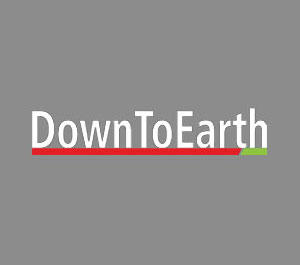The Environment Health Bulletin - May, 2012
 Food safety and Toxins Unit's quarterly newsletter
May, 2012
|
||||||||||||||||||||||||||||||||||||||||||||||||||||||||||||||||||||||||||||||||||||||||||||||||||||||||||||||||||||||||
 Dear friends, Dear friends,Many of you are going to receive this newsletter for the first time. We are sending this to you because we believe this newsletter will help you in the remarkable work that you have been doing and the difference that you can make by being part of a strong community that is pushing for better governance in the field of food safety and environment health. This is a special issue on junk food. Centre for Science and Environment (CSE) has a state-of-the-art laboratory and the lab has recently done the nutritional analysis of popular junk food – chips, French fries, pizzas, burgers, soft drinks, fried chicken, instant noodles etc. -- that are sold to us through persuasive and glamorous advertisements. We all know ‘in general’ that junk food is bad for health and is one of the main causes of rising non-communicable diseases. But how bad is it? The results are damning. French fries, pizzas, burgers, chips and instant noodles were found to have high contents of trans fats and salt. Even worse is the fact that the companies – all of them being major global brands - are misleading the consumers by mislabelling their products. We found high amount of trans fat in products that claim to be trans fat free. All this is happening because India’s labelling laws are weak and ineffective. Our study has also revealed that companies have double standards as far as disclosure of information is concerned. While in the US, the same companies- McDonald’s, KFC, Pizza Hut and Domino's- would give complete nutritional chart for their products including trans fats, saturated fats and salt, in India they disclose very little. Clearly they think that Indians don't need to know much. The fact is that governments across the world are waking up to rising health cost of junk food, especially for children. Several countries have banned sale of junk foods in and around schools. In 2008 the UK banned junk food advertisements during television programmes aimed at children under-16 years. Denmark and Hungary imposed a fat tax on junk food last year. Many countries have made nutritional labelling stricter. We, in India, need to do all these and more simply because of our genetic predisposition to middle obesity and diabetes. In this edition not only have we shared the junk food studies with you, we have brought to fore the food safety issues in Nepal and how they are dealing with them. Our guest writer for this edition Dr Dileep Mavalankar shares his views on the concept of fat tax on food rich in salt, sugar and trans fats. It is an interesting read. Despite this being a junk food special issue, we have also looked at policies regulating antibiotic use in animals both in India and the US and how ineffective they are. Clearly these rules on antibiotics are merely lip service and they need major revisions. Our attempt to make this a junk food special issue is to get some reaction from you on what needs to be done and how we as a community should move ahead in ensuring that our generations to come are not fed with food that will make them fat and sick by the time they hit adulthood. Your comments and critiques are welcome. |
||||||||||||||||||||||||||||||||||||||||||||||||||||||||||||||||||||||||||||||||||||||||||||||||||||||||||||||||||||||||
| -Chandra Bhushan | ||||||||||||||||||||||||||||||||||||||||||||||||||||||||||||||||||||||||||||||||||||||||||||||||||||||||||||||||||||||||
|
||||||||||||||||||||||||||||||||||||||||||||||||||||||||||||||||||||||||||||||||||||||||||||||||||||||||||||||||||||||||
|
Coming Soon: "Food as Toxin" CSE's latest publication on food safety and contamination issues. To book your copies mail us at rchandran@cseindia.org
|
||||||||||||||||||||||||||||||||||||||||||||||||||||||||||||||||||||||||||||||||||||||||||||||||||||||||||||||||||||||||
|
||||||||||||||||||||||||||||||||||||||||||||||||||||||||||||||||||||||||||||||||||||||||||||||||||||||||||||||||||||||||
 |
||||||||||||||||||||||||||||||||||||||||||||||||||||||||||||||||||||||||||||||||||||||||||||||||||||||||||||||||||||||||
 |
||||||||||||||||||||||||||||||||||||||||||||||||||||||||||||||||||||||||||||||||||||||||||||||||||||||||||||||||||||||||
| Centre for Science and Environment41, Tughlakabad Institutional Area, New Delhi. India - 110062 | Tel: +91-11 29955124, 29956110, 40616000 Fax: +91-11 29955879 | E-mail: cse@cseindia.org | ||||||||||||||||||||||||||||||||||||||||||||||||||||||||||||||||||||||||||||||||||||||||||||||||||||||||||||||||||||||||
Newsletter
National Fellowships
Story
Down to Earth

November 23, 2017

November 23, 2017

November 23, 2017

November 23, 2017

November 23, 2017
Madhya Pradesh bans gutkha and other chewing tobacco products



















Share this article